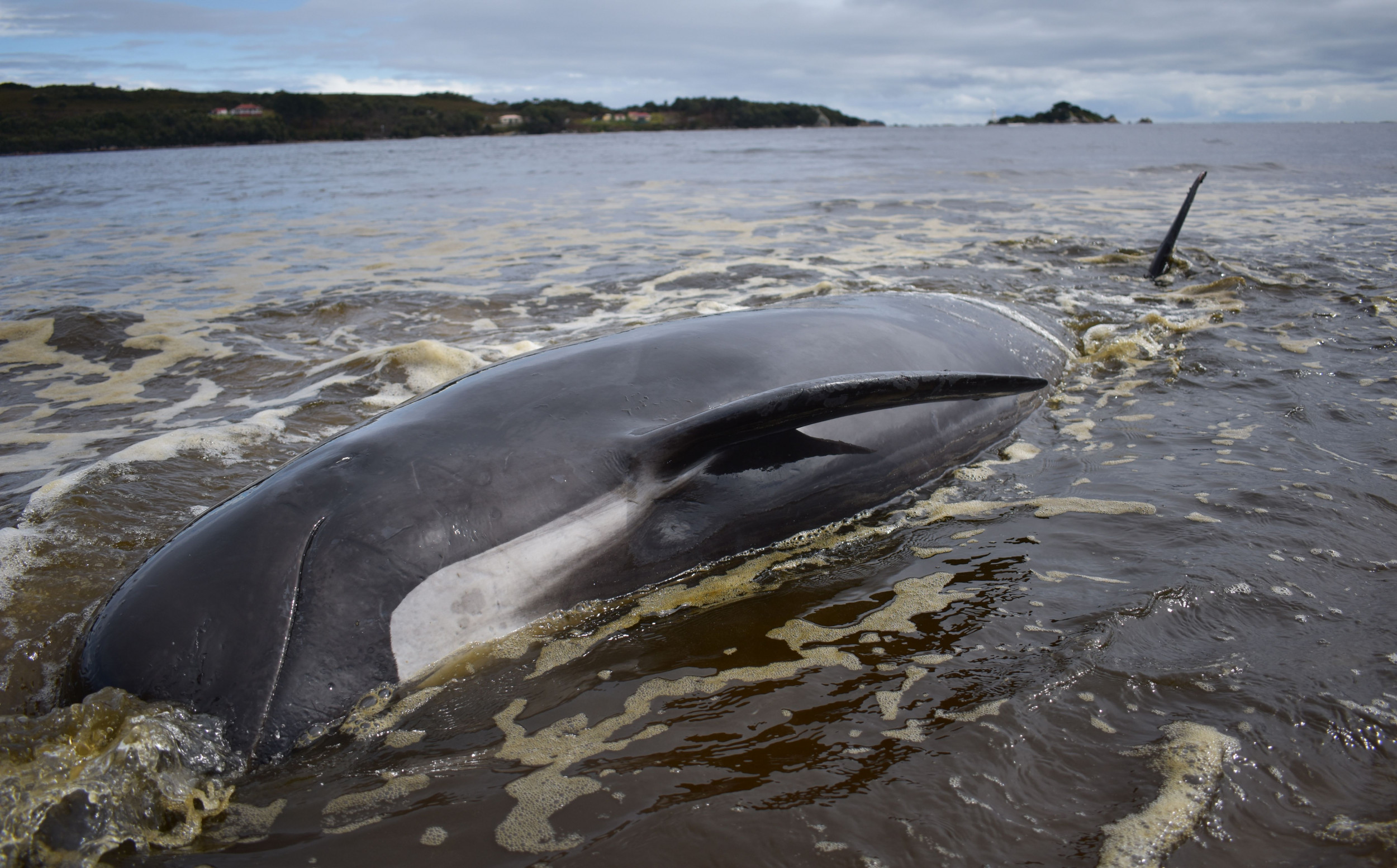As Australian authorities try and dispose of hundreds of dead whales after the country’s worst ever mass stranding event, the area could see an large increase in sharks as the come to feed on the carcasses, officials have said.
There is already evidence that sharks have “chomped” on one dead whale, news.com.au reported. Sharks have also been sighted north of Macquarie Harbor, a natural inlet on the island state of Tasmania, where the whales were beached.
“It needs to be understood that this is an environment sharks are present in all the time and sharks are certainly not uncommon in this part of the world and, in fact, the locals fish for sharks off the beach,” Nic Deka, from the Tasmanian government’s Parks and Wildlife Service, told the website.
Since Monday, more than 450 long-finned pilot whales have become stranded on the shores of Macquarie Harbor. About 350 of these have now died, according to Tasmania’s Department of Primary Industries, Parks, Water and Environment. A team of scientists, government officials and volunteers is now developing a plan for the removal of the carcasses, a process that could take four or five days from Friday.
“We’re confident we can get the bulk of the carcasses out so the health of the harbor is not compromised,” Deka told news.com.au.
One plan being considered involves towing the dead whales out to sea 10 to 20 at a time using a boat, and perhaps even cutting open their bodies so that they sink and decompose faster. But this dumping of whale bodies into the ocean outside the harbor could attract sharks to the area, according to Deka, although none have been spotted in the harbor yet.
“There are sharks around, the numbers may increase with carcasses in the sea but we are doing a few things to get them to decompose quickly so that if that is an issue, it’s an issue for less of a time,” he is quoted as saying. “We don’t think [the sharks] will enter the harbor but we’re keeping a very keen eye for that and if we get any indication that’s likely to increase in risk then we’ll reassess how’re we’re using our people and get them out of the water.”
On Friday, rescuers managed to free six of the remaining beached whales that are still alive, meaning a total of 94 have now been returned to the sea.
Kris Carlyon, a biologist from Tasmania’s Parks and Wildlife Service, said saving so many animals was “one hell of an effort,” even though many whales had died. “We haven’t dealt with a stranding of this type before and we are using new and novel techniques as part of the rescue event,” he said in a statement.
The biologist said the Tasmanian government had never had to move so many pilot whales offshore before. “Each and every stranding is different and you apply the method you have at your disposal to undertake the best, quickest and most humane rescue of animals. The best case scenario is these animals will regroup and rebond,” he said.
Officials said Friday they are still hoping to save between 12 and 20 whales that have the greatest chance of survival. At least five whales have had to be euthanized after being assessed by a vet as they were too weak to be freed. Newsweek
